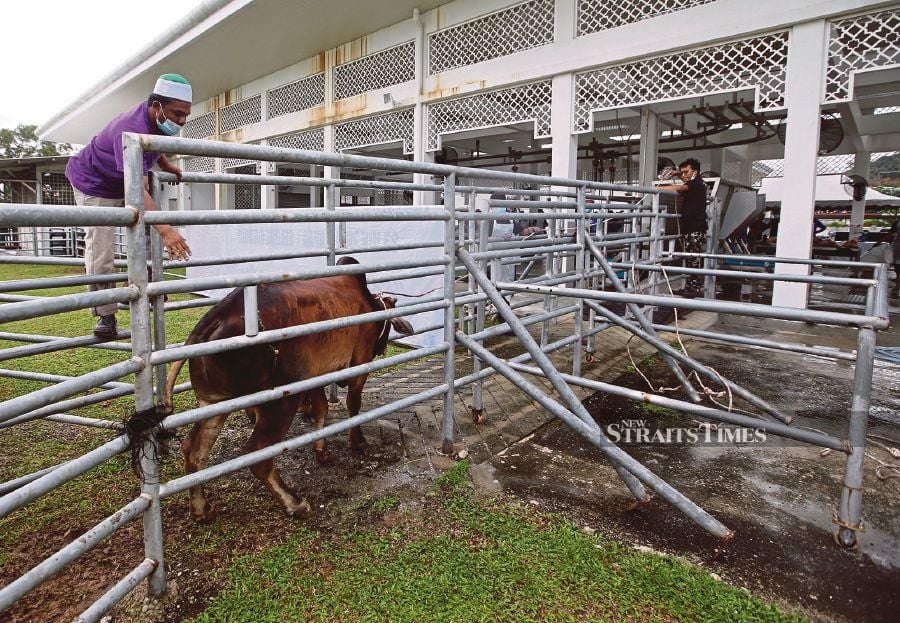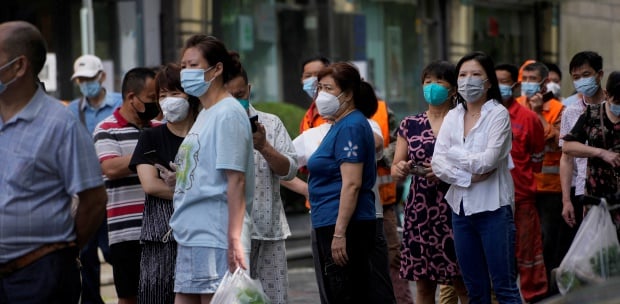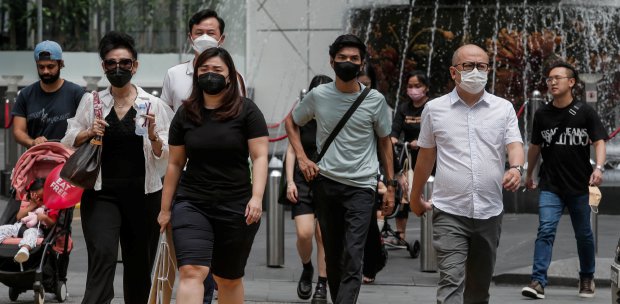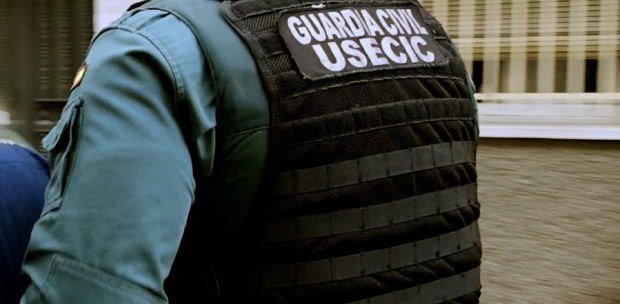MUSLIMS worldwide celebrated Eid al-Adha or Hari Raya Korban (Feast of the Sacrifice) yesterday to commemorate Prophet Abraham's willingness to sacrifice his son in an act of obedience to Allah's command —a trial from Allah to test his piety to submit to His will.
For his obedience and patience to God's will, before Abraham could carry out the sacrifice, Allah ordered the angel Gabriel to provide a substitute for his son i.e. a ram.
This had been recorded in the Quran. Allah says to the effect: "And We have ransomed you with a mighty sacrifice." (Qur'an 37: 107).
Muslims emulate Abraham's dedication and obedience to Allah by sacrificing their livestock during the Eid al-Adha festival from the 10th to 13th of Zulhijjah (the twelfth and final month in the Islamic calendar).
The ritual signifies the willingness of those who perform the sacrifice to give up or share bounties in one form or another.
If it is carried out with full sincerity and solely to seek the pleasure of Allah, the sacrifice will result in the intended outcome i.e. piety. In the Quran, Allah says: "It is neither their meat nor their blood that reaches God but your piety." (Qur'an, 22: 37).
Sacrifice is a multidimensional construct. In the above scenario, sacrifice is religious in nature.
Nevertheless, sacrifice is an essential element for man in his life journey in this world. To succeed or survive in this journey requires sacrifice.
In the context of Covid-19, the presence of sacrifice as an underpinning value in managing the pandemic is glaring. It has made a huge impact on the effectiveness of the overall mechanism employed by the government to prevent the pandemic from causing more damage to the well-being of the people.
The implementation of the Movement Control Order (MCO), for example, had slowed down economic activities as all government and private premises were instructed to close or cease operations temporarily.
Many employees' livelihoods were affected not only because of financial hardship, but also due to restrictions imposed by the government through the MCO, which made it difficult for them to apply a quick fix to the problem.
The government then introduced various economic plans to cushion the impact of lockdown measures.
Malaysians also endure great inconvenience as they must conform to new norms and sacrifice established routines, ceremonies, traditions and even religious practices. This is the price to be paid in order to contain and flatten the curve of the pandemic.
Indeed, many parties are involved in combating Covid-19 in Malaysia. The most notable are the frontline workers. It is very unusual and very uncomfortable to work long hours in a high-risk environment. But for the sake of the nation, our healthcare staff, together with the national defence and security team and various other agencies, have gone beyond the call of duty.
Without their dedication and commitment, we would not be recognised as one of the most successful countries in the world in handling Covid-19. Instead, we would be struggling in the battle against the pandemic.
As one of the few countries which managed to keep new cases low, we hope to win the battle and finally restore our daily lives and economy again.
The Finance Ministry and a few international agencies have forecasted that we can achieve economic recovery as early as 2021 with gross domestic product growth of between 6.3 per cent and 7.5 per cent.
This forecast is subject to Malaysia's success in continuing to curb this pandemic and the extent to which it is able to attract investors and consumers to be active in the economy.
At the same time, we hope everybody will give their full support to the preventive and corrective measures to minimise the impact of Covid-19 on the wellbeing of the entire population.
The writer is a Fellow, Centre for Economics and Social Studies, Institute of Islamic Understanding Malaysia






